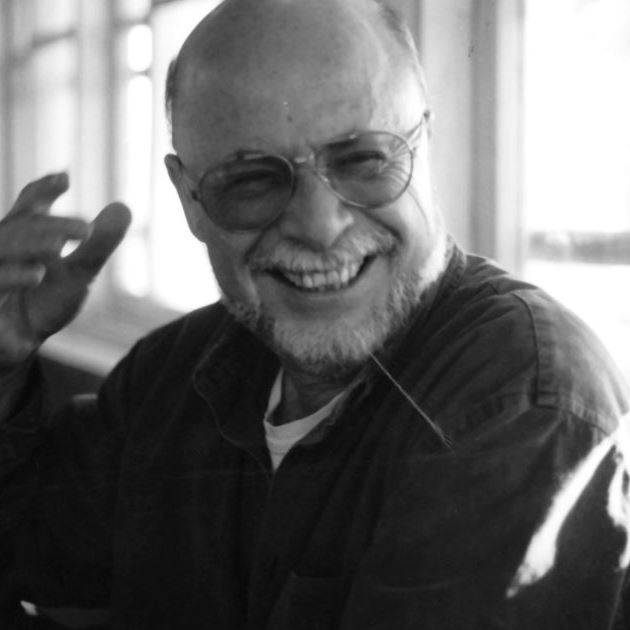
Avraham Heffner (May 7, 1935 – September 19, 2014) was a director, screenwriter, author, and Professor Emeritus at the Department of Film and Television at Tel Aviv University. He was a recipient of the Israel Prize for Lifetime Achievement.
Mr. Heffner was born in 1935 in Haifa, where he grew up. He studied at the Reali School in Haifa. In 1953 he joined the IDF and served in the Nachal Troupe along with Uri Zohar, Haim Topol, Gabi Amrani, and Nehama Hendel. After his service he moved to Jerusalem, where he studied English Literature and Philosophy at the Hebrew University. Later he studied Philosophy, Linguistics and American Literature at the Sorbonne in Paris. After three and a half years, Heffner moved to New York, where he continued studying Philosophy at City College and began studying cinema. In New York he directed three short films, including “The Most Wonderful Religious Conversion of Young Hamlet, and a film based on Shay Agnon’s “Simple Story”. According to Heffner, the love of cinema had been in his heart since the age of 17.
From the late 1960’s, Heffner began establishing himself as one of Israel’s finest and most prominent filmmakers, although he did not make many films. His fourth short film (1967), “Slow Down”, an adaptation of a short story by Simone de Beauvoir, won the Golden Bear Award at the Venice Film Festival. In the 1960’s and 1970’s he was a member of the stream of personal cinema makers (“the New Sensitivity”) that made social films of a European avant garde style that were in direct contrast with the down-to-earth contemporary films of the time. A well-known film of this trend was “But Where is Daniel Wax?”, which Heffner wrote and directed in 1972 and is considered one of the finest movies in Israeli filmmaking history. Two other Heffner films, “Aunt Clara” (1977) and “Laura Adler’s Last Love Affair” (1990) are considered a eulogy to the old Yiddish speaking Jews who live in Israel. “Aunt Clara”, which was semi-autobiographical, tells the story of three Polish sisters who run a bridal parlor, and the life of one of the sister’s only child. “Laura Adler’s Last Love Affair” relates the final days in the life of a Yiddish theater star, while eulogizing Yiddish theater and actors. His last full-length feature film, “The Winchell Affair”, was about a journalist’s investigation of an unsolved political assassination.
In 1998, Heffner created and directed a four-part TV series entitled “Small Country, Great Man”, which told the story of a police investigation trying to identify the body of a man killed in a suicide attack. It was a cynical look at the ever-changing 1990’s Israel and the death of the Zionist myth.
Heffner also collaborated with the Educational Television, and in the 1970’s he created the children’s series “The Magic Door” and “Bulbul Hakabulbul”, which taught children the importance of road safety. These were extremely successful and were broadcast as reruns until the 1980’s.
Along with his cinematic work, Heffner taught filmmaking and screenwriting at academic institutions, raising generations of filmmakers. He was one of the founders of Tel Aviv University’s Department of Screenwriting.
He also wrote a large number of novels and books about cinema, including: “Includes Everything”, “Like Abelard, Like Heloise”, “Cinema Paper”, “Avraham Heffner: Book of Screenplays” (a collection of all the screenplays he wrote and directed), “Movies Don’t Grow on Trees”, and many others.
In 2004 Heffner received the Lifetime Achievement Award (Ophir Prize) from the Israeli Film Academy.
He died in Tel Aviv in 2014.